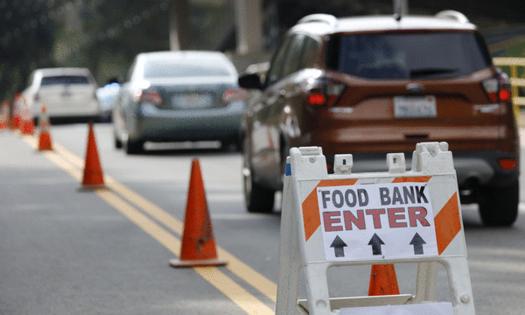Appeals court rules Trump administration cannot avoid paying SNAP
Published in News & Features
WASHINGTON — A federal appeals court ruled late Sunday that the Trump administration can be forced to pay full food benefits in November, putting the onus on the Supreme Court to decide whether the administration can avoid paying benefits that feed more than 40 million people.
The unanimous ruling from a three-judge panel of the U.S. Court of Appeals for the 1st Circuit declined to block a lower court order requiring the administration to move funds to pay for the Supplemental Nutrition Assistance Program, commonly known as food stamps, for November.
In Sunday’s order, Judge Julie Rikelman wrote that allowing partial payments for SNAP would cause immense harm nationwide for the more than 40 million people in the program.
“Without SNAP, tens of millions would go hungry — the first among a cascade of other health and financial harms that would befall those forced to go without enough food, particularly in the months leading up to winter,” Rikelman wrote.
The judges’ ruling followed a temporary order from Supreme Court Justice Ketanji Brown Jackson on Friday that paused the original trial judge’s order until at least 48 hours after the 1st Circuit ruling — which now means the Supreme Court must act by Tuesday night, or the administration would be forced to pay the benefits.
On Monday morning, Jackson issued a second order directing the Trump administration to weigh in on its planned next steps for the litigation. The lawsuit could quickly become irrelevant if pending legislation to end the government shutdown, which the Senate advanced on Sunday, becomes law this week.
Sunday’s ruling came after a flurry of legal filings and administrative flip-flops in recent days as political recriminations mounted over the delays in benefits received by one in eight Americans.
After a trial court order last month, the Trump administration made a payment of more than $4 billion from a contingency fund to cover part of the food benefits for November as the shutdown has dragged on. The Trump administration initially sought to not pay the benefits at all, and Trump himself has said he did not intend to pay them until the end of the shutdown, which he has blamed on congressional Democrats.
Then on Thursday the presiding judge, Chief Judge John J. McConnell Jr. of the U.S. District Court for the District of Rhode Island, ordered the administration to transfer so-called Section 32 funds to pay the full amount of SNAP benefits.
McConnell also faulted the Trump administration for making a partial payment using a contingency fund when it knew it would take states weeks or months to actually pay partial benefits. He also said the administration had withheld the payments for political purposes.
The ruling came out of a lawsuit brought by Rhode Island State Council of Churches, nonprofit groups and local governments, seeking to force the government to pay the full benefits for the mandatory government program.
The administration then appealed that ruling to the 1st Circuit — and to the Supreme Court when the appeals court didn’t act — seeking to avoid paying the benefits while the case went on. The administration argued that McConnell overstepped his bounds by ordering the administration to move the funds in order to pay for the program.
Initially the administration also sent out a memorandum stating it would pay the benefits while seeking not to do so in court. After the Supreme Court’s order on Nov. 7, the administration also told states not to pay the full amount of benefits.
The lawsuit is separate from one brought by dozens of states in federal court in Massachusetts, where a federal judge said the suspension of SNAP benefits violated federal law. Those states also sought to intervene in the appeal, arguing that a further delay in SNAP payments would hurt beneficiaries.
Both the states and the federal government have said in court filings that the partial payment for November could take weeks or potentially months to resolve administrative problems and actually get payments to beneficiaries.
©2025 CQ-Roll Call, Inc., All Rights Reserved. Visit cqrollcall.com. Distributed by Tribune Content Agency, LLC.







Comments